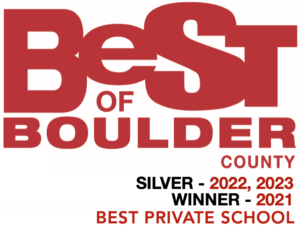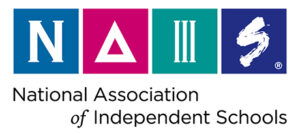by Meg Hansen, Director of Marketing and Communications
Parents of Friends preschoolers know that their children are learning at one of Boulder’s best preschools. What’s often a surprise for them, however, is the added parent education they receive from our amazing preschool team of Christie Stanford, Hetta Towler, Jessie Vanden Hogen and Amanda Smith. There’s so much to learn during these early parenting years and our preschool teachers are often the first to help.
Once a month, our preschool team works with Polly S. Douglass, a Certified Synergetic Play Therapist, who advises our staff and works with families on child-related issues. Polly and our teachers discuss all sorts of things including the different tools we use to support kids going through challenges that might not always be school-related.

One way that our preschool teachers understand and support our students going through these challenges is through emotional regulation – how we deal with big emotions so that we can get back to a calm state. Often times, big emotions might arise for children around transition times and not knowing what’s coming next. Providing a consistent classroom schedule helps students feel confident and safe by reducing the number of unknowns during the school day. Teaching children about self-regulation through block stories, modeling, and practice as well as providing sensory materials helps support children’s understanding of their bodies and their feelings. Students might find comfort in a piece of chewelry, playing in the sensory bin, taking a jump on the trampoline, buffering sounds with headphones, touching soft pieces of fabric, or taking a break in the cozy cave under the stairs. Mindful breaths before transitions also help children to get back into their bodies and prepare them for the next transition. These are just a few of the ways that our preschool teachers help their students navigate their feelings, creating a safe environment of friends who understand that everyone is working on something while building compassion for one another.

Helping parents understand and practice their own self-regulation has a huge impact on their child’s ability to self-regulate. Preschool teacher Hetta Towler explains that “regulation is all about putting on your own oxygen mask first before we can best support our children. If your child is dysregulated and you are too, the situation quickly becomes amplified. By modeling regulation and holding space for your child when they are feeling a big emotion, you are acknowledging their feelings, providing a sense of safety, and comforting them as they move through the feelings. When parents are regulated, they are more able to tune into the emotion behind their child’s behavior and recognize what their child is experiencing. All behavior has an underlying cause and message.”
Earlier this week at a parent education event led by Polly for our current preschool community, Polly and parents offered self-regulation tools and techniques to help children and adults move through the underlying emotions with greater ease and compassion. They gave examples of taking a dragon breath, getting settled into their bodies, and providing play opportunities for their children to process emotions and experiences. When children are acting out, often times they are asking, “am I safe?” and “am I ok?” By creating a safe and loving space for the child, they are more readily able to come back into regulation.

These are positive tools that anyone can learn. Preschool teacher Christie Stanford reminded parents to “be compassionate and gentle with themselves when trying co-regulation with their child. It is a journey and a process that is not fixed overnight. Try one or two things, keep trying, and be persistent. Our preschool teachers are not only here to support our students, but also our parents by offering various tools and resources. All without judgment. We know that being a parent has its challenges and we are here to help.”
As we head into Thanksgiving break (another transition for children), Hetta reminds us to “take this time to be with your family, go slow, be present, practice self-care. Trust your innate knowledge of what it feels like to love your child and your innate ability to be a parent. It will not always be perfect but it’s not supposed to be. Be gentle on yourself so that you can practice the same with your child.”
With gratitude for everyone in our Friends School community, Happy Thanksgiving.





